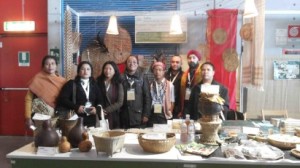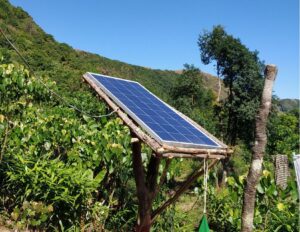By R. Sujatha

Though millets have found their way in to dishes served at health expositions, diabetics, who need it more, are yet to start including it in their diet.
A pilot study undertaken by M.V. Hospital for Diabetes, Royapuram, to understand the impact of millets in the diet has thrown up interesting findings.
The study on a group of 34 diabetics (18 working men and 13 women homemakers) has shown that including millets in the diet is beneficial in reducing blood-sugar levels.
Vijay Viswanathan,
chief diabetologist and author of the study, said, it was done on a controlled group of diabetics. They were on oral medication, but not insulin.
Their drug regimen did not change during the period of study. And it was ensured there were no changes in their activity levels during the study period.
The participants were between 37 and 53 years of age and had been diagnosed around five years prior to the study. On the first day, they were given a rice-based breakfast. On the fourth day, they were given millet-based food, without changing the carbohydrate component. The patients were assessed on both days for fasting and post-prandial (after-meal) glucose levels.
The study found the low glycemic index millet-based breakfast was effective in significantly reducing post-prandial glucose levels as compared to rice-based breakfast in all participants.
“We chose breakfast as it is during the early hours of the day the glucagon hormone is active, causing a rise in blood sugar,” the diabetologist said.
“We must do more studies to establish the effects of using millets instead of rice in our diet. Such large studies take time and resources,” he said. Though the nutritional value of millets has been understood, it is not cultivated as much as rice or wheat is, as it is not remunerative enough, said Ravi Kesavan, head of department of millets at Tamil Nadu Agricultural University.
Several years ago, the State government had developed a programme to increase production of millets.
“The sale of millet-based bakery products has taken off well. It is localised and limited to certain districts but we are trying to turn farmers into entrepreneurs as this would also improve cultivation,” he said.
[The story originally appeared in the daily – The Hindu]



